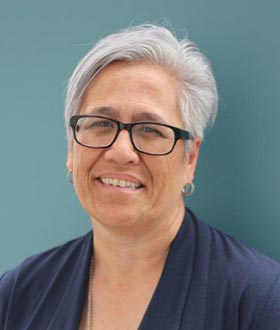
Acknowledging those at the frontline and the 172 health-care workers in Aotearoa who had been infected by COVID-19, she said the pandemic had highlighted vulnerable communities, including those in aged residential care, and Māori, Pacific and rural communities. She warned of the need to be mindful the response to COVID-19 did not create more inequities.
Broodkoorn’s presentation focused on the first State of the World’s Nursing Report, released in May.
Data for Aotearoa’s contribution to the report had been gathered from national health workforce accounts, the Nursing Council, the Ministries of Health and Education, employers and professional associations. Nurses made up 68 per cent of New Zealand’s health workforce and midwives 3.3 per cent, with internationally qualified nurses (IQNs) comprising 27.2 per cent of the nursing workforce. The nursing workforce had topped 60,000 in March.
Broodkoorn outlined five major implications of the report for New Zealand:
- that nursing workforce policy aligns to the United Nations’ sustainable development goals, universal health coverage and quality care;
- that detailed and transparent nursing workforce data is collected and analysed – it is incomplete in New Zealand;
- that more is invested in the domestic production of nurses; and
- that accountable leadership in nursing education, employment, regulation and policy is advanced.
Broodkoorn referred to an academic paper examining the report that had pointed out it was silent on the international indigenous workforce.
The report referred to the ethical utilisation of IQNs, who, she said, “contributed fantastically” to our health-care system. But New Zealand was drawing on other countries’ nursing workforces. At international hui, global nursing leaders had told her those nurses were needed at home.
Future policy challenges in New Zealand included recruitment and retention, safe staffing, mental wellbeing and enabling regulatory and legislative systems.
The nursing workforce would keep pace with population growth over the next years if entry and exit patterns continued. The New Zealand nursing workforce had increased by 10 per cent between 2017-2020. But COVID-19 has had an impact on recruitment, with some practice settings and regions showing a decline in the ratio of nurses per population.
Factors influencing the demand and supply or nurses included global labour markets, models of care, wage settlements and changing immigration settings.
Referring to New Zealand, Broodkoorn said there had been good investment in nursing and she cited the safer staffing accord, more mental health nurses, investment in enrolled nurses and nurse practitioners and the advanced choice of employment programme. She was aiming to achieve “one national, coherent nursing workforce strategy” this year but COVID-19 had delayed that work.
While there had been investment in nursing, there was “still some way to go” but Broodkoorn was confident things “were in good hands”.
Responding to a question, she said strategies were being considered to address the pay gap between Māori and iwi provider nurses and their district health board counterparts. She acknowledged NZNO’s and kaiwhakahaere Kerri Nuku’s work on the issue. “This is a very important question and we haven’t had an outcome. We have continued to look at opportunities to address this issue with the Māori health directorate and our Māori health workforce team colleagues. Something needs to change in that space. Work is happening to get to a point where it is addressed.”
Broodkoorn said there may be a delay in achieving 100 per cent employment for all new graduates but directors of nursing were working on strategies to ensure full employment of new graduates. In response to a question, she said she “wouldn’t disagree” with free nursing education, given the looming shortfall of nurses. “It would be a dream to achieve for me. I’ll put the idea forward to the Ministry of Education whānau.”
Broodkoorn leaves the ministry at the end of the year to return home to take up the role of chief executive of Hokianga Hauora. It had been an “absolute pleasure” to be the CNO.




